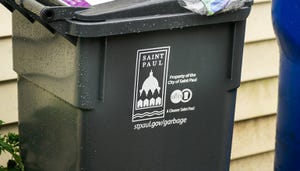A Look at ISWA’s Efforts to Close Dumpsites
Closure of every Brazilian dumpsite would translate to reduced carbon dioxide emissions equivalent to taking seven million cars off the roads.
The International Solid Waste Association (ISWA) is undertaking a global effort to close problematic dumpsites and help modernize solid waste infrastructure.
In one example, it helped initiate the closure of one of Brazil’s most problematic dumps, and supporting establishment of a safer alternative and is now looking to take on similar initiatives elsewhere in the country. In that effort it is working with the Associação Brasileira de Empresas de Limpeza Pública e Resíduos Especiais (ABRELPE), the Brazilian member of ISWA.
“The closure of the Estrutural dumpsite in Brazil, part of ISWA’s #closedumpsites initiative, will go on to target the biggest dumpsites all over the world. But Brazil … gave our initiative one of its first success stories,” says Gerfried Habenicht, head of communications, events and marketing at the ISWA General Secretariat. “Our initiative was used to inspire the city of Brasilia to close down the largest dumpsite in Latin America. One positive thing we learned is that solutions can be found for very difficult—some may have thought hopeless—situations, if you find the right access and work with the right partners.”
Closure of every Brazilian dumpsite would translate to reduced carbon dioxide emissions equivalent to taking seven million cars off the roads, improving conditions for 76 million citizens, according to ISWA.
The global campaign supports the sustainable development goals identified by the United Nations. ISWA’s strategy entails convincing international decision makers of the need for more investments in waste management, especially in the developing world. And it includes providing guidance and support in closing inadequate sites.
ISWA will use directives on its Roadmap for Closing Waste Dumpsites to assist local authorities in these projects. The roadmap was instrumental in setting up procedures entailed in the closure of Brasilia’s Estrutural site.
“Closing dumpsites is not an easy and immediate task,” says Carlos Silva Filho, vice president of ISWA and CEO of ABRELPE. “One of the main challenges is ensuring that an alternative adequate destination is available.”
Facilitating reform first involves convincing stakeholders and representatives at the municipal level of the importance of taking these projects on.
“As a first step, we would like to set up a network for knowledge exchange and capacity building,” Habenicht says. “And we are currently asking municipal and local government representatives to become part of it.”
State and federal governments are also asked to join this initiative, to provide funding and help ensure standard directives, nationwide.
ISWA is working with international partners to finance the efforts in Brazil. This includes a project in the city of Dar es Salaam, Tanzania, to build capacity of the Pugu dumpsite, one of the world’s largest.
In and beyond Brazil, the organization has called for experts to join a unit to support municipalities. And an ISWA scholarship program has helped get kids who were sorting garbage at Nicaraguan sites off dumpsites and into school.
Educating and motivating the public has been key to garnering support.
“Most of the required … solutions will only be implemented if the people are convinced of its benefits and develop some pressure on the political authorities. So we are also focusing on raising the awareness of the population,” Silva Filho says.
The next targeted dumpsites have not been identified, but will be in the Northeast and in Sao Paulo—Brazil’s richest state, but one with dangerously inadequate open dumps.
As far as the project to close and replace Estrutural, 45 million reais ($15 million), has been invested in operation of the first phase of the new sanitary landfill. The Brazilian site’s expected lifespan is at least 13 years, with a possible 20-year extension due to an improved, separate collection system and organics recycling. The project is slated to be finished by the middle of 2018.
Through its process, ISWA has learned local challenges and demands, which it anticipates will be relevant moving forward. It will guide the schedule and actions to achieve similar results as at Estrutural.
But in each case there will be unique capabilities, and focusing on them will be key to sustainability.
“ISWA-ABRELPE assistance will finish one day, but the solution must remain open and adequate forever. For that, in my opinion, social awareness and support is the most required achievement in any project like this,” Silva Filho says.
About the Author(s)
You May Also Like




